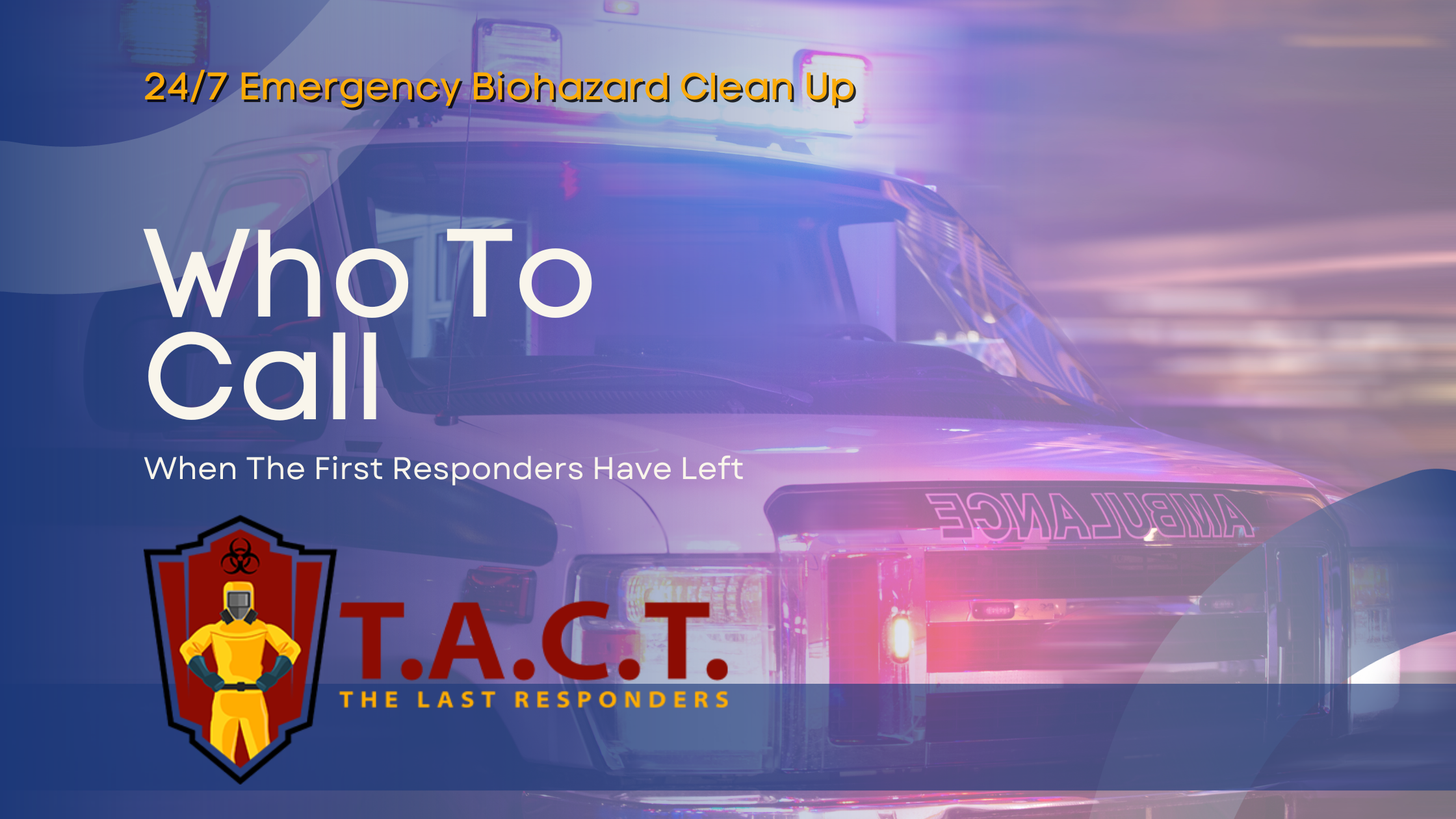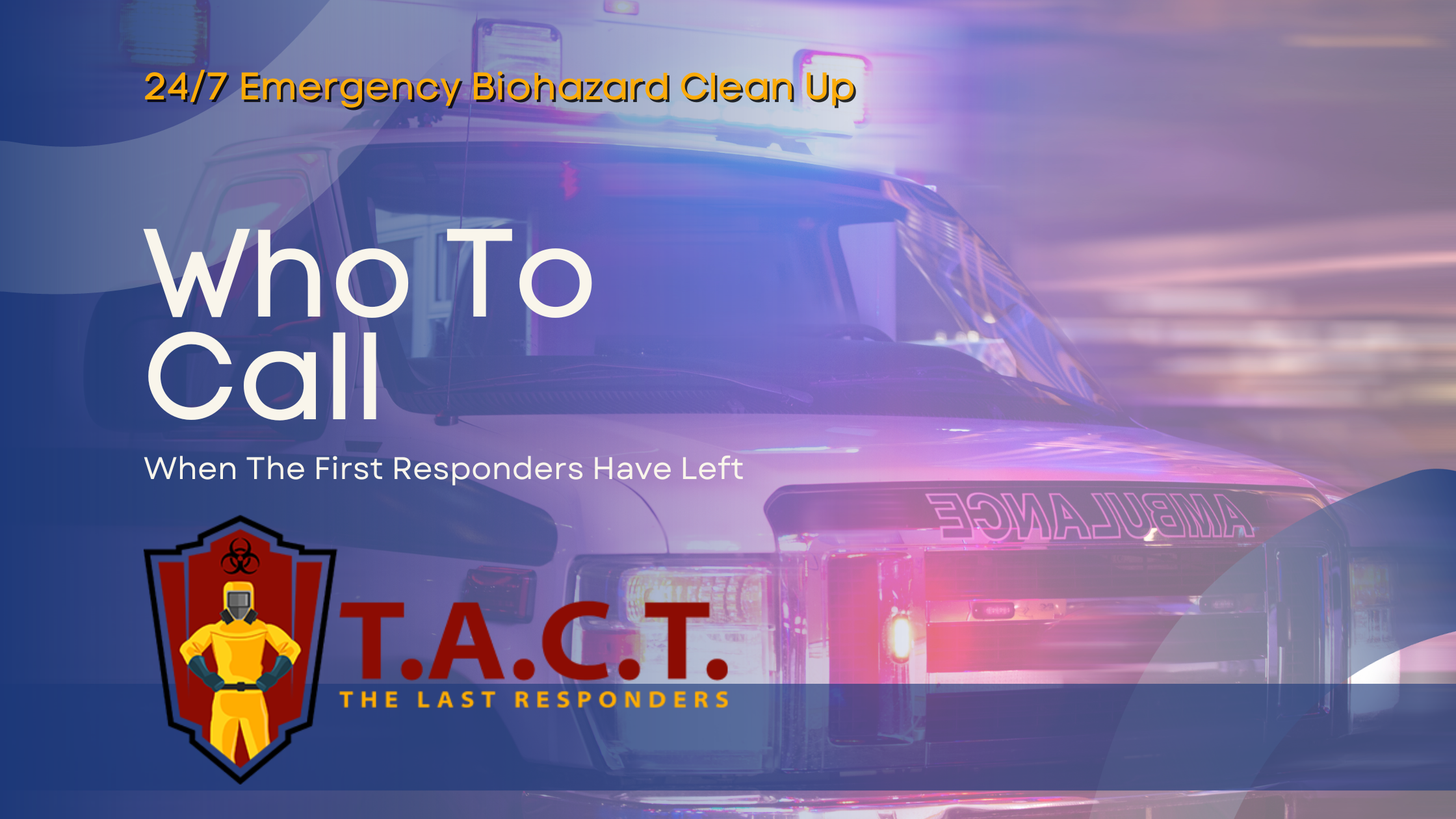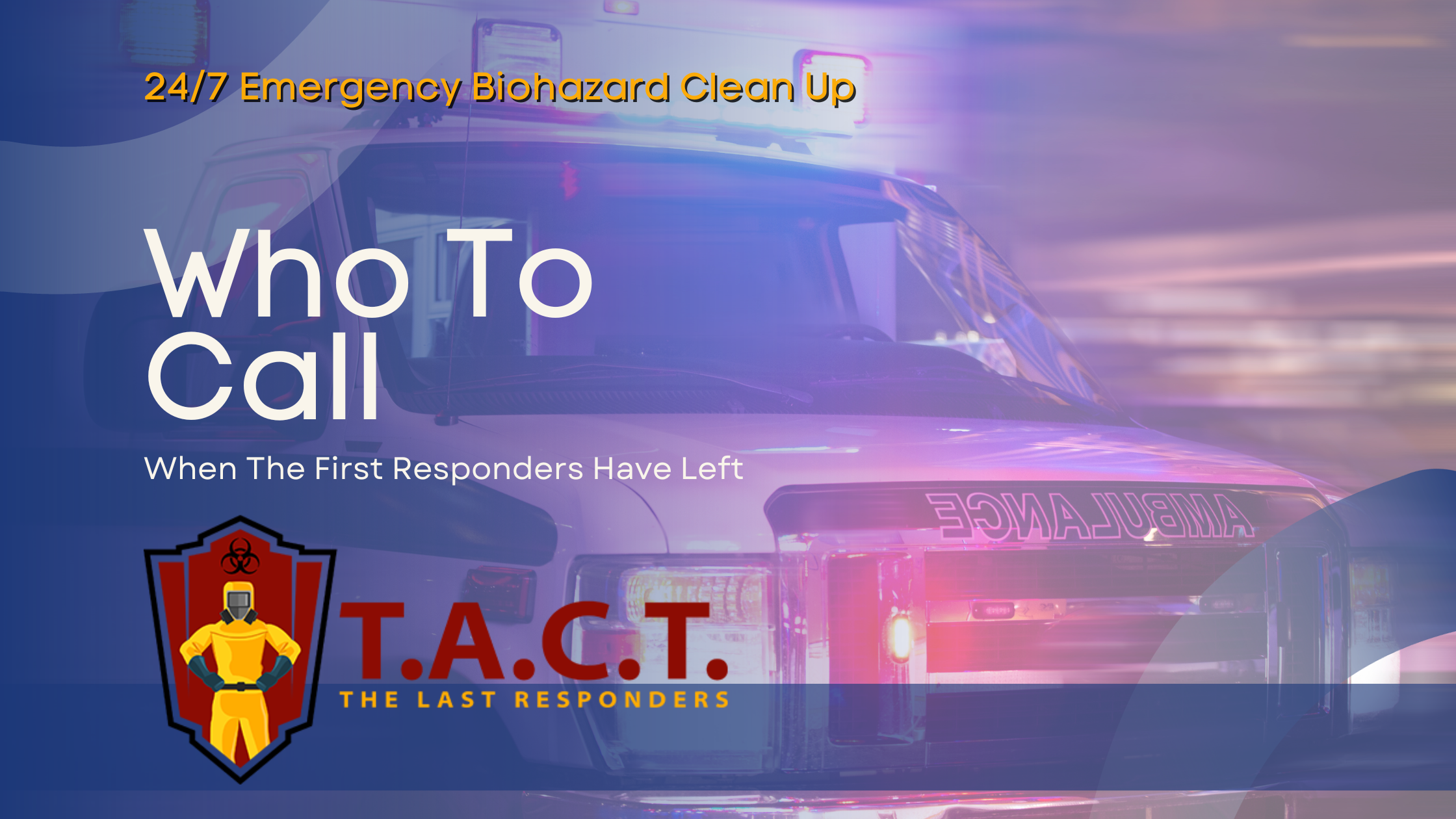Crime scene cleaning Franchise
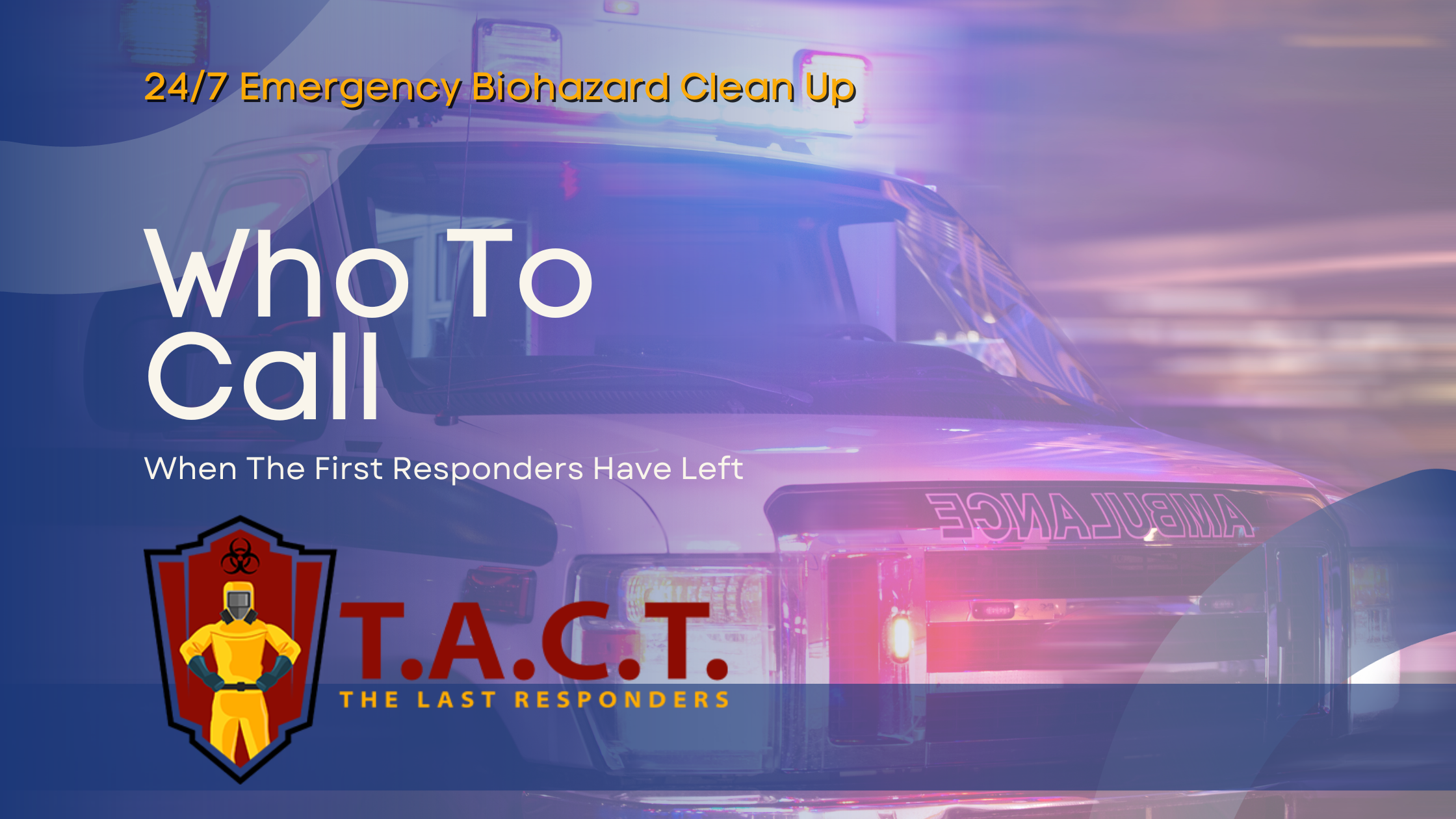
Crime Scene Cleaning Franchise: Your Guide to Starting a Biohazard Remediation Business
The crime scene cleaning industry represents a unique business opportunity that combines essential community service with strong profit potential. With the industry valued at over $300 million annually and expected to grow 8-10% through 2028, a crime scene cleaning franchise offers entrepreneurs a recession-proof business model in an underserved market.
Unlike traditional cleaning services, crime scene cleanup requires specialized training, equipment, and certification to handle biohazardous materials safely. This creates significant barriers to entry for independent operators while providing established franchises with competitive advantages through proven business models, comprehensive training programs, and ongoing support systems.
In this comprehensive guide, we’ll explore everything you need to know about starting your own crime scene cleaning franchise, from investment requirements and training to market demand and regulatory considerations.
What is a Crime Scene Cleaning Franchise
Crime scene cleaning franchises specialize in biohazard remediation and trauma cleanup services that restore properties to safe, habitable conditions after traumatic events. These businesses provide decontamination services for blood, bodily fluids, and hazardous materials that pose serious health risks to untrained individuals.
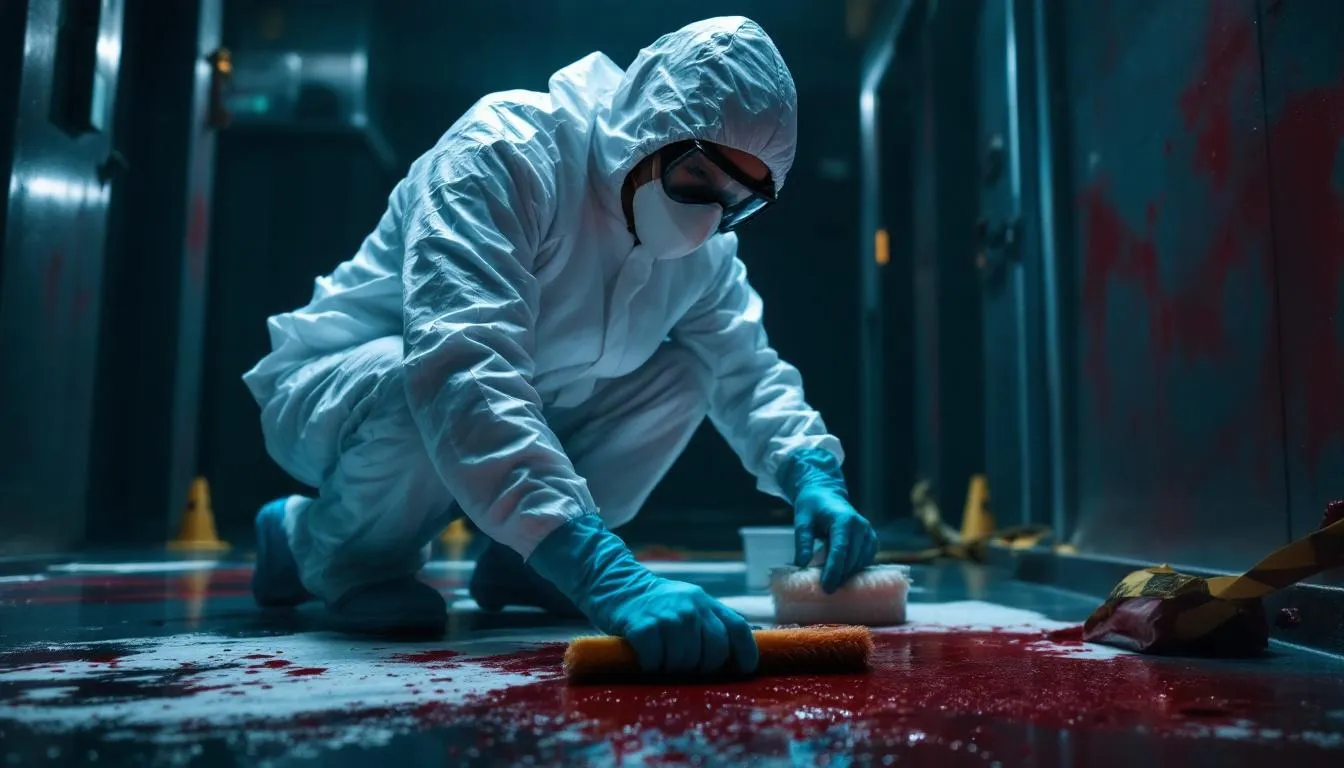
The scope of services extends far beyond what the name suggests. Franchisees handle crime scene cleanup, suicide cleanup, unattended death cleanup, infectious disease decontamination, hoarding situations, mold remediation, and other biohazard situations. This diversification creates multiple revenue streams and helps maintain steady demand regardless of crime rates in specific locations.
Franchises operate under established brand names with proven business models and comprehensive training programs. Unlike starting an independent biohazard cleanup business, franchisees benefit from immediate brand recognition, standardized procedures, and ongoing operational support. The business operates 24/7 to provide emergency response services to families, businesses, first responders, and law enforcement agencies.
The trauma scene cleaning franchise model addresses both the technical complexity and emotional challenges of the work. Franchisees receive extensive training in safety protocols, chemical handling, and compassionate customer service, ensuring they can provide valuable service during people’s most difficult moments while maintaining profitable operations.
Top Crime Scene Cleaning Franchise Opportunities
The biohazard cleanup industry includes several established franchise systems, each offering different approaches to the market. T.A.C.T. (Trauma and Crime Scene Technicians) represents one professional biohazard remediation companywith strategic locations across the country, demonstrating the geographic expansion potential available to franchise owners.
When evaluating trauma scene cleaning franchise opportunities, consider factors such as brand reputation, training quality, territory availability, and support systems. Established franchises typically offer proven marketing strategies, relationships with insurance companies, and streamlined operational procedures that reduce the learning curve for new franchise owners.
The most successful franchises in this industry focus on comprehensive service offerings that extend beyond basic crime scene cleanup. Companies that also handle hoarding cleanup, mold remediation, and infectious disease decontamination can serve broader market needs and generate higher revenues from their existing customer base and referral networks.
Look for franchises that provide 24/7 call center support, as emergency response capabilities are crucial for success in this industry. The ability to respond quickly to traumatic events not only serves clients better but also helps establish strong relationships with police departments, hospitals, and other sources of referrals.
Investment Requirements and Costs
Starting a crime scene cleaning franchise requires substantial upfront investment, but the financial returns can justify the initial costs. Initial franchise fees typically range from $45,000 to $75,000 depending on the brand and territory size, with most established franchises falling within this range.
Total investment costs range from $150,000 to $350,000 including equipment and working capital. This comprehensive investment covers specialized cleaning tools, personal protective equipment, biohazard containers, vehicle modifications, and initial marketing expenses. The higher investment reflects the specialized nature of the equipment and the regulatory requirements governing biohazard cleanup operations.
Investment Component | Cost Range |
|---|---|
Initial franchise fee | $45,000 - $75,000 |
Equipment and supplies | $50,000 - $100,000 |
Vehicle and modifications | $30,000 - $80,000 |
Working capital | $25,000 - $75,000 |
Marketing and insurance | $10,000 - $20,000 |
Equipment costs include specialized cleaning tools, personal protective equipment, and biohazard containers that meet regulatory standards. Vehicle requirements include properly equipped vans or trucks for transporting equipment and waste, often requiring custom modifications to safely handle biohazardous materials.
Ongoing royalty fees typically range from 5% to 8% of gross revenue, which is competitive with other service-based franchises. These fees support continued training, marketing support, and access to new technologies as the industry evolves.
Many franchises offer financing assistance or partnerships with lenders familiar with the industry, helping qualified candidates overcome the initial investment hurdle. The high profit margins typical in biohazard cleanup services often allow franchise owners to recover their investment within 2-3 years of operation.
Training and Certification Requirements
Comprehensive training programs cover OSHA bloodborne pathogen standards and safety protocols that are mandatory for anyone handling biohazardous materials. The current franchise disclosure document for most established franchises details extensive training requirements that typically span 2-4 weeks of intensive instruction.
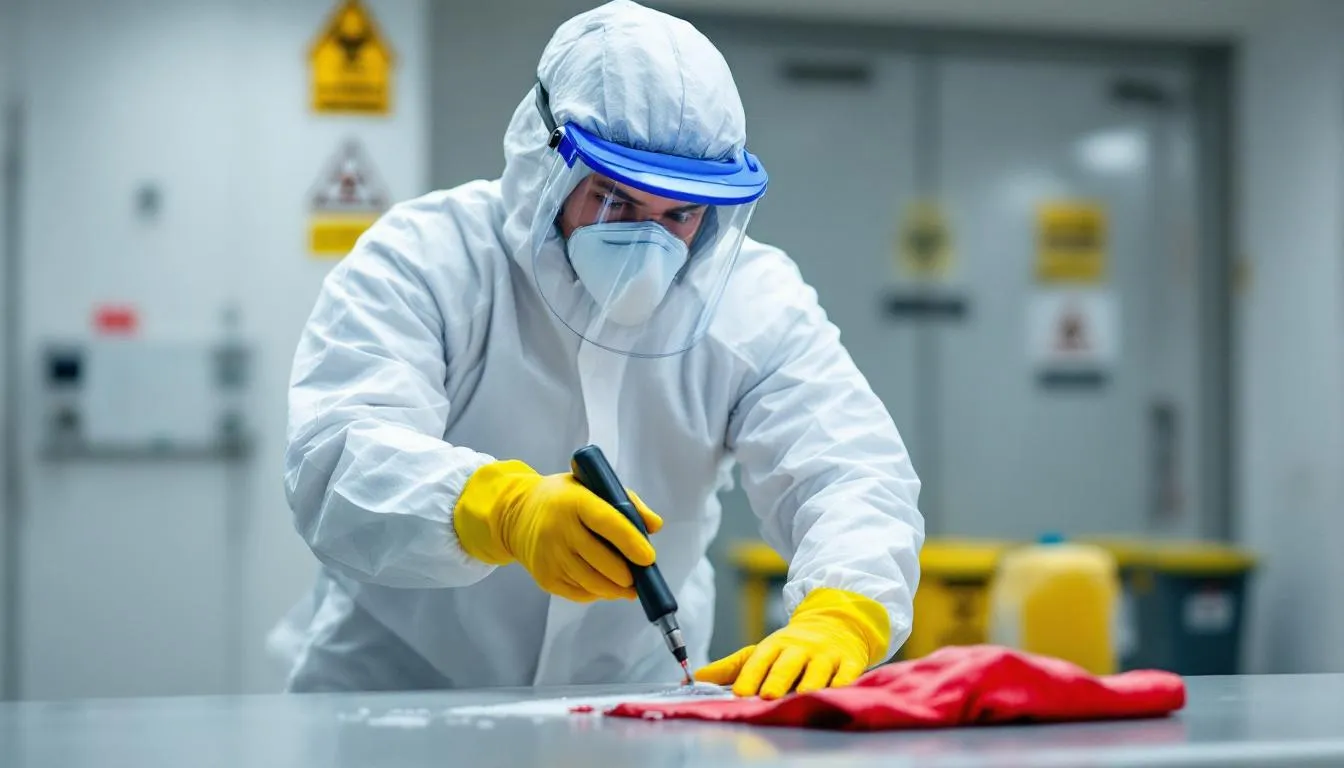
Certification in biohazard cleanup, crime scene restoration, and infectious disease decontamination requires understanding complex safety procedures and regulatory compliance. Training includes proper use of personal protective equipment and chemical decontaminants, ensuring technicians can safely remediate even the most challenging biohazard scenes.
Business management training covers customer service, marketing, and operational procedures specific to the biohazard cleanup industry. This includes learning how to work compassionately with grieving families, coordinate with insurance companies, and maintain relationships with first responders and law enforcement agencies.
Key training components include:
OSHA 40-hour hazardous waste operations certification
Chemical handling and disposal procedures
Crime scene documentation and photography
Customer service for traumatic situations
Business operations and marketing strategies
Ongoing education requirements help franchise owners maintain certifications and stay current with industry standards. As regulations evolve and new cleaning technologies emerge, franchises provide continuing education to ensure all locations maintain the highest safety and service standards.
The training investment is substantial, but it creates significant competitive advantages. Properly trained franchisees can handle complex cleanup situations that independent operators cannot safely manage, leading to higher fees and stronger customer relationships.
Franchise Benefits and Support
Established brand recognition and reputation in the biohazard cleanup industry provide immediate credibility with potential clients, insurance companies, and referral sources. This recognition reduces marketing costs and shortens the sales cycle compared to building an independent business from scratch.
A 24/7 call system for emergency customer service ensures that franchise owners never miss potential business due to unavailability. Since traumatic events occur at all hours, having professional call center support significantly improves customer satisfaction and revenue potential.
Marketing materials and digital marketing support including website development and search engine optimization help franchise owners compete effectively in their local markets. Most franchises provide proven marketing strategies, branded materials, and ongoing support to help owners attract new clients and build referral relationships.
Relationships with insurance companies, law enforcement, and medical facilities are crucial for success in this industry. Established franchises have already built these relationships at the corporate level, making it easier for new franchise owners to gain acceptance and referrals from these important sources.

Bulk purchasing power for equipment, supplies, and specialized cleaning chemicals reduces operating costs and ensures consistent quality across all locations. This purchasing power can save individual franchise owners thousands of dollars annually while ensuring they have access to the best available products.
Ongoing Operational Support
Regular business coaching and performance reviews with franchise consultants help owners optimize their operations and grow their businesses systematically. This support is particularly valuable in an industry where operational efficiency directly impacts profitability and safety.
Technical support for complex cleanup situations and regulatory compliance provides peace of mind for franchise owners facing challenging jobs. Having access to experienced technical experts can mean the difference between successfully completing a difficult project and facing costly mistakes or safety violations.
Access to new cleaning technologies and equipment as they become available ensures that franchisees remain competitive and can offer the most effective services. The biohazard cleanup industry continues to evolve, and staying current with new technologies is essential for maintaining market leadership.
Networking opportunities with other franchisees through conferences and training events create valuable peer support systems. Experienced franchise owners often share best practices, operational tips, and business development strategies that help newer owners accelerate their success.
Market Demand and Growth Potential
Growing demand driven by increased awareness of biohazard risks and health safety creates a favorable environment for franchise growth. The COVID-19 pandemic significantly heightened public awareness of contamination risks, leading to increased demand for professional decontamination services across all market segments.
The aging population creates increased need for unattended death and trauma cleanup services, as elderly individuals living alone become more common. This demographic trend provides a steady source of demand that is independent of crime rates or economic conditions.
Rising crime rates in certain areas increase demand for crime scene cleanup services, though franchises with diverse service offerings are less dependent on this single factor. The ability to handle hoarding situations, mold remediation, and other biohazard situations provides multiple paths to revenue growth.
Industry research indicates that the biohazard cleanup sector is expected to grow 8-10% annually through 2028, significantly outpacing overall economic growth. This growth is driven by multiple factors including increased regulation, growing health awareness, and expansion of services into new market segments.
The recession-proof nature of the business creates additional appeal for potential franchise owners. Traumatic events, unattended deaths, and biohazard situations occur regardless of economic conditions, providing stable demand even during economic downturns.
Geographic expansion opportunities remain significant, as many markets remain underserved by professional biohazard cleanup services. Franchise owners who establish strong local reputations often have opportunities to expand into adjacent territories or add additional service lines.
Legal and Regulatory Considerations
Business licensing requirements vary by state and may include specialized biohazard permits beyond standard business licenses. Prospective franchise owners must research local and state requirements carefully, as operating without proper licenses can result in significant penalties and business closure.
OSHA compliance is mandatory for handling bloodborne pathogens and hazardous materials, requiring strict adherence to safety protocols and regular training updates. Violations can result in substantial fines and potential criminal liability, making proper training and procedures essential for legal operation.
DOT regulations apply to transportation and disposal of biohazardous waste, requiring special permits and procedures for vehicle operation and waste handling. These regulations are complex and vary by state, making franchise support valuable for ensuring compliance.
EPA regulations govern proper disposal of contaminated materials and chemicals, with severe penalties for improper disposal. Franchise systems typically provide guidance on approved disposal methods and relationships with licensed waste disposal facilities.
Current franchise disclosure documents are required in certain states before franchise purchase, providing detailed information about the franchise system, fees, and legal obligations. Prospective buyers should review these documents carefully with qualified legal counsel before making investment decisions.
The regulatory environment continues to evolve, with increasing oversight and standardization across the industry. Franchise systems that stay ahead of regulatory changes provide valuable protection for their franchise owners against compliance risks.
Is a Crime Scene Cleaning Franchise Right for You
Strong stomach and emotional resilience are required for handling traumatic cleanup situations that can be psychologically challenging. Successful franchise owners typically have prior experience in healthcare, emergency services, or other fields that involve exposure to difficult situations.
A compassionate nature is essential for working with grieving families and victims during their most difficult moments. The ability to provide professional service while showing genuine empathy distinguishes successful operators from those who struggle in this industry.
Detail-oriented approach is necessary for thorough decontamination and safety compliance, as incomplete cleanup can pose serious health risks and legal liability. Franchise owners must be willing to follow detailed procedures precisely and maintain high standards even under difficult circumstances.
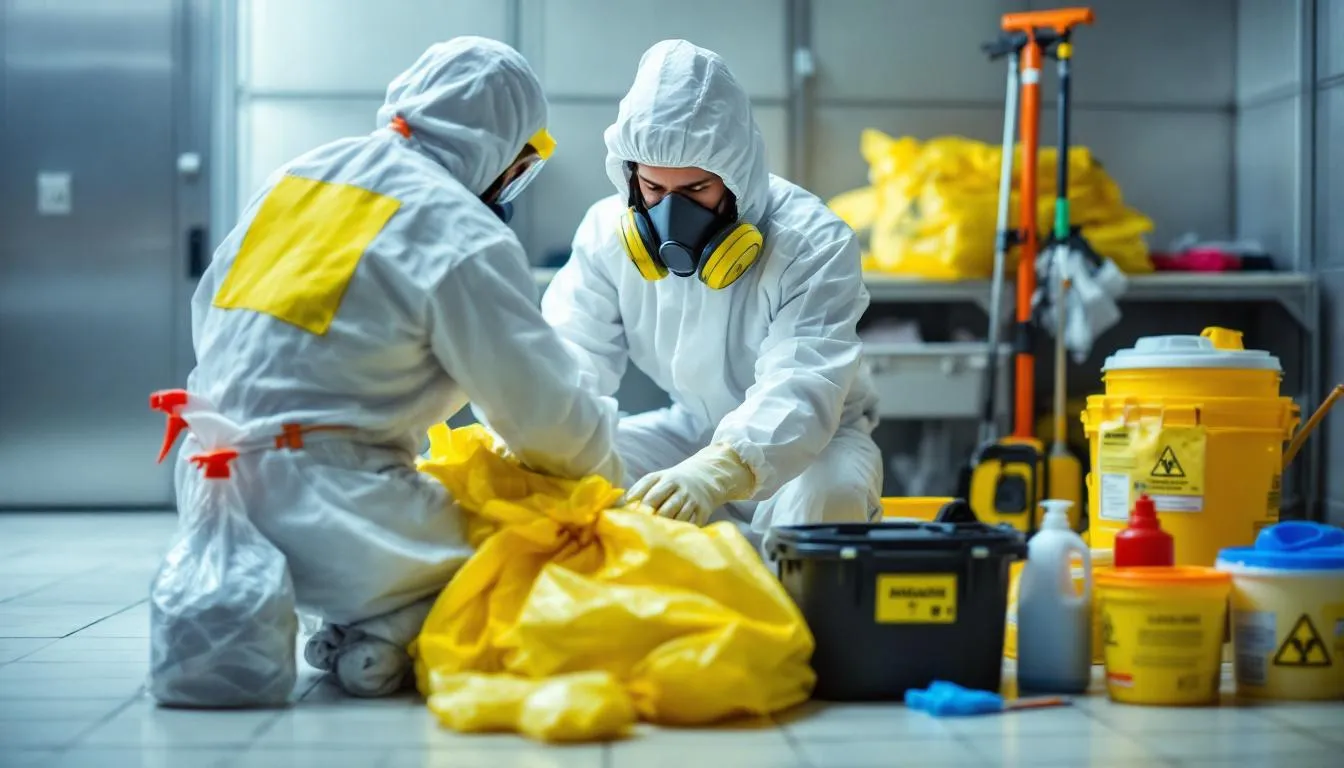
Business management skills are helpful for running a successful franchise operation, including marketing, financial management, and employee supervision. While franchises provide training and support, owners with prior business experience often achieve success more quickly.
Financial stability is required to handle seasonal fluctuations and emergency equipment purchases that are common in this industry. Having adequate working capital helps franchise owners weather slow periods and invest in growth opportunities.
Consider these personal characteristics when evaluating your fit for this industry:
Ability to work in emotionally challenging environments
Strong attention to detail and safety procedures
Compassionate communication skills
Physical stamina for demanding cleanup work
Entrepreneurial mindset and business acumen
Financial resources for sustained investment
The crime scene cleaning franchise industry offers a unique combination of meaningful community service and strong profit potential. For entrepreneurs with the right personal qualities and financial resources, it represents a lucrative business opportunity in a growing, recession-resistant market.
Success in this industry requires dedication to safety, compassion for clients, and commitment to excellence in all aspects of the business. Franchise owners who can meet these challenges while building strong community relationships often find both financial success and personal satisfaction in their work.
If you’re considering this opportunity, take time to thoroughly research different franchise options, speak with current franchise owners, and honestly assess your suitability for the demands of the business. With proper preparation and commitment, a crime scene cleaning franchise can provide a rewarding path to business ownership while making a meaningful difference in your community.

